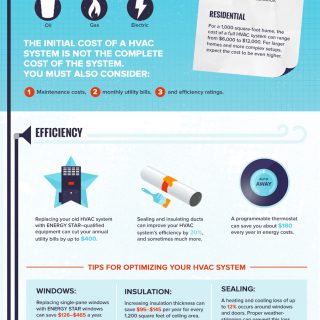The Future Of Home Home Heating - Exactly How Heat Pump Innovation Is Evolving
The Future Of Home Home Heating - Exactly How Heat Pump Innovation Is Evolving
Blog Article
Personnel Writer-Skaaning Roy
Heatpump will be an essential innovation for decarbonising heating. In a situation regular with governments' introduced power and environment dedications, their worldwide ability doubles by 2030, while their share in heating rises to one-quarter.
They function best in well-insulated homes and depend on power, which can be provided from a renewable power grid. Technical breakthroughs are making them more reliable, smarter and cheaper.
Fuel Cells
Heat pumps use a compressor, refrigerant, coils and followers to move the air and warm in homes and devices. They can be powered by solar energy or electricity from the grid. They have actually been obtaining popularity due to their affordable, peaceful operation and the capability to create electrical power during peak power demand.
Some firms, like IdaTech and BG MicroGen, are dealing with gas cells for home heating. These microgenerators can change a gas central heating boiler and produce a few of a house's electric requirements with a connection to the electrical energy grid for the remainder.
Yet there are reasons to be unconvinced of using hydrogen for home heating, Rosenow claims. It would certainly be pricey and ineffective contrasted to other modern technologies, and it would contribute to carbon discharges.
Smart and Connected Technologies
Smart home modern technology enables property owners to link and regulate their devices remotely with using smart device applications. For example, clever thermostats can discover your home heating choices and immediately adjust to enhance power usage. Smart lighting systems can be managed with voice commands and immediately switch off lights when you leave the space, reducing energy waste. And smart plugs can keep an eye on and manage your electric use, enabling you to recognize and limit energy-hungry devices.
The tech-savvy home depicted in Carina's meeting is a great illustration of exactly how residents reconfigure room heating methods in the light of brand-new clever home technologies. They rely upon the gadgets' automatic attributes to carry out day-to-day modifications and concern them as a hassle-free means of performing their home heating techniques. Therefore, they see no reason to adjust their techniques further in order to make it possible for versatility in their home energy need, and treatments focusing on doing so might face resistance from these houses.
Power
Since warming homes accounts for 13% people emissions, a switch to cleaner alternatives could make a huge distinction. Yet the innovation faces challenges: It's costly and needs comprehensive home remodellings. And it's not always compatible with renewable energy sources, such as solar and wind.
Until recently, electrical heat pumps were too costly to take on gas models in a lot of markets. However brand-new technologies in style and materials are making them extra cost effective. And much better cold climate efficiency is allowing them to operate well even in subzero temperature levels.
https://www.firstcoastnews.com/article/news/local/st-augustine-man-claims-88-year-old-mother-was-price-gouged-by-heating-and-ac-company/77-660091ce-15dd-4b67-b611-189a38e8bf4f in decarbonising home heating might be making use of warmth networks, which draw heat from a central resource, such as a close-by river or sea inlet, and distribute it to a network of homes or structures. That would certainly reduce carbon emissions and permit households to take advantage of renewable energy, such as eco-friendly electricity from a grid provided by renewables. This alternative would certainly be much less expensive than switching over to hydrogen, a nonrenewable fuel source that calls for new facilities and would only lower CO2 discharges by 5 percent if paired with boosted home insulation.
Renewable resource
As electrical power prices go down, we're beginning to see the same fad in home heating that has actually driven electrical cars into the mainstream-- however at an even much faster rate. The strong environment instance for impressive homes has been pressed even more by new research study.
Renewables make up a substantial share of modern-day warm intake, however have been provided minimal policy attention around the world contrasted to various other end-use industries-- and even much less focus than electricity has. Partially, this shows a mix of consumer inertia, split motivations and, in several nations, aids for nonrenewable fuel sources.
New innovations could make the shift simpler. For instance, heat pumps can be made more power effective by replacing old R-22 cooling agents with new ones that do not have the high GWPs of their predecessors. Some specialists also picture area systems that draw warmth from a neighboring river or sea inlet, like a Norwegian arm. The cozy water can after that be utilized for heating & cooling in an area.